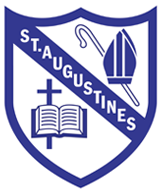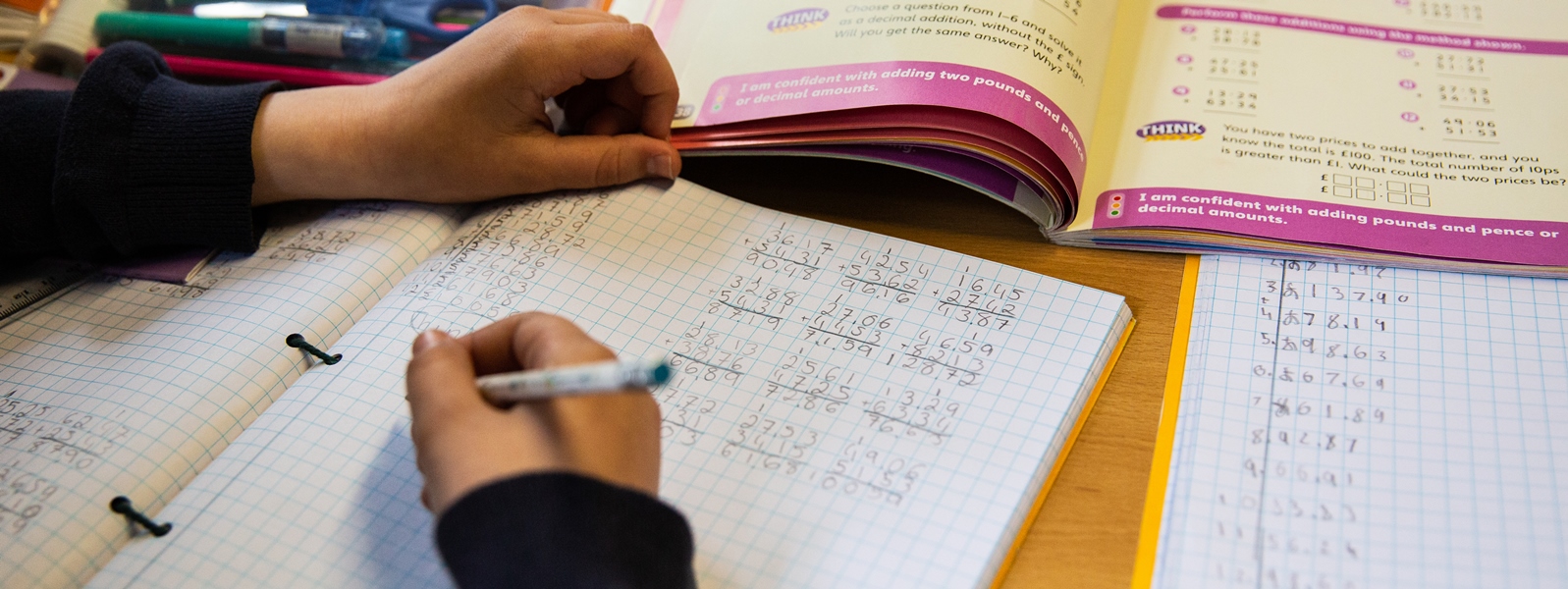Maths
‘It’s fine to work on any problem, so long as it generates interesting mathematics along the way – even if you don’t solve it at the end of the day. ‘
Andrew Wiles
At St Augustine’s we believe that mathematics introduces children to concepts, skills and thinking strategies that are essential in everyday life and support learning across the curriculum. It helps children make sense of the numbers, patterns and shapes they see in the world around them, offers ways of handling data in an increasingly digital world and makes a crucial contribution to their development as successful learners. Children delight using mathematics to solve a problem, especially when it leads them to an unexpected discovery, or new connections. We also think that mathematics offers children a powerful way of communicating. They learn to explore and explain their ideas using symbols, diagrams and spoken and written language. Studying mathematics stimulates curiosity, fosters creativity and equips children with the skills they need in life beyond school.
‘It’s not that I’m so smart; it’s just that I stay with problems longer.’
Albert Einstein
The staff at St Augustine’s believe that everyone is born with the ability to be good at maths. We enjoy talking about methods and strategies that pupils use and we love to see the enjoyment from finding a solution and how their confidence grows. All children can do maths they just need time and the right explanation.
In Early Years Foundation Stage Maths is taught daily through a focused activity; indoor and outdoor activities allow for using and applying mathematical knowledge. As children move up to KS1 they further explore what numbers mean using the counting principles, they listen to stories based around numbers and engage with the Numberblocks characters as they investigate numbers up to 10 and beyond.
As we progress through the school to KS2, we continue to gain a deeper understanding of number and how different operations link to each other. We teach mathematical ideas, not only facts, we use a Concrete (objects) – Pictorial (drawings) – Abstract (formal methods) approach to learning new concepts which enables everyone to succeed, meaning that pupils acquire a deep, long-term, secure and adaptable understanding of the subject rather than rote learning of key procedures.
We have a strong emphasis on mental calculation. Key facts, such as times tables and addition facts within 10, are learnt to automaticity to avoid cognitive overload in the working memory and to enable pupils to focus on new concepts.
We work closely with parents and carers and strongly encourage them to help their children learn the traditional range of number facts such as:
- number bonds
- compliments to 100
- multiplication facts
- division facts
At the same time, we recognise that many everyday activities at home can support children’s understanding of mathematical concepts such as time, measures and money and also reinforce their confidence in working with numbers. Activities such as cooking, DIY, shopping and using timetables provide a sense of reality and purpose for the maths learning that goes on in school.
Children at St Augustine’s learn and use technical mathematical vocabulary from the start of their journey, as we believe you can only articulate and explain your ideas if you have a good command of language. Consequently, speaking and listening is a big part of our mathematical learning environment, and we aim to give children the confidence to talk about how and why they have used certain strategies.
St Augustine’s teachers take pride when they see students, who previously struggled with the subject, start to enjoy it and look forward to more lessons. We nurture a growth mindset, where children know that failure is only an opportunity to grow; pupils are encouraged to try out new things; they are inspired by the success of others and understand that their effort and attitude determine their abilities.
We promote a love and enjoyment for maths and believe that all children can achieve.
‘Mathematics knows no races or geographic boundaries,
for mathematics the cultural world is one country.’
David Hilbert

